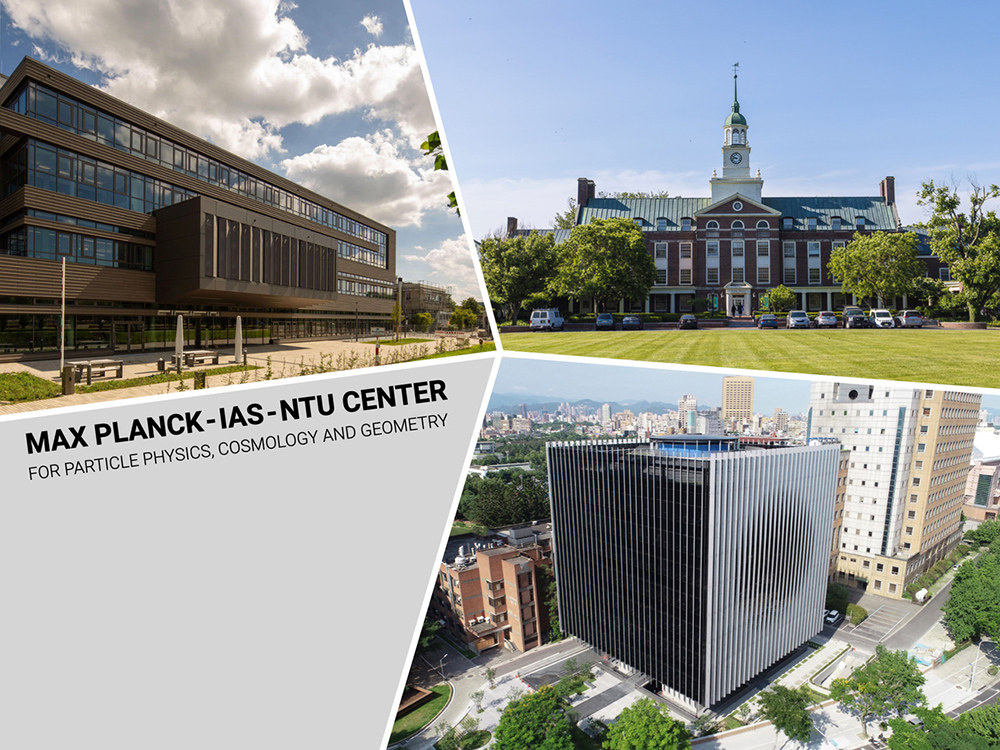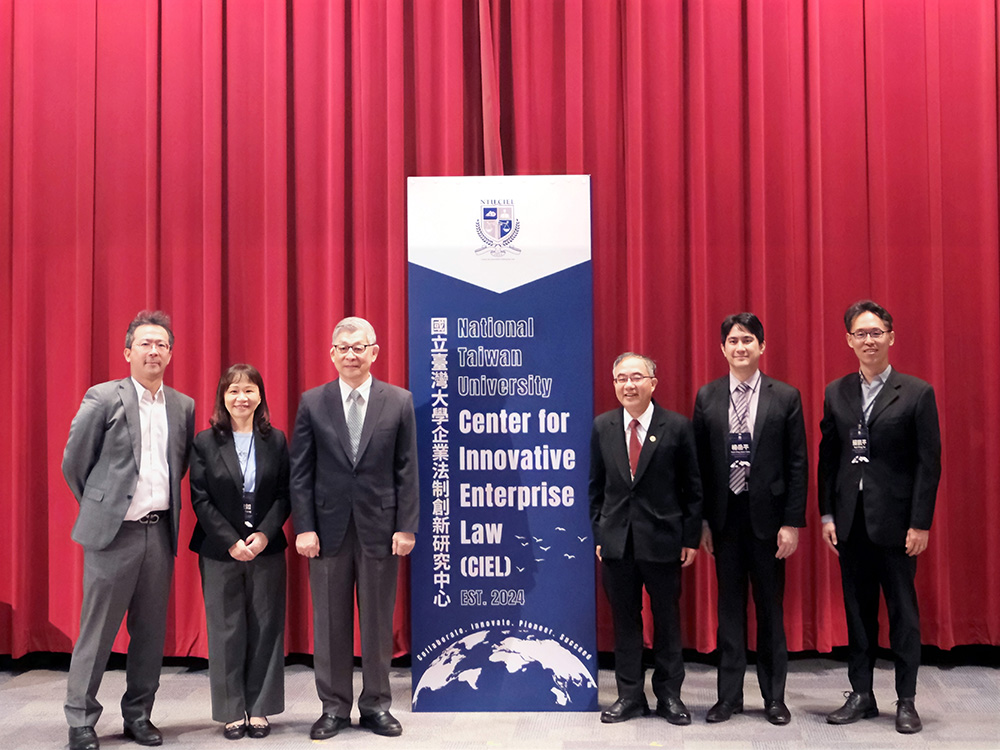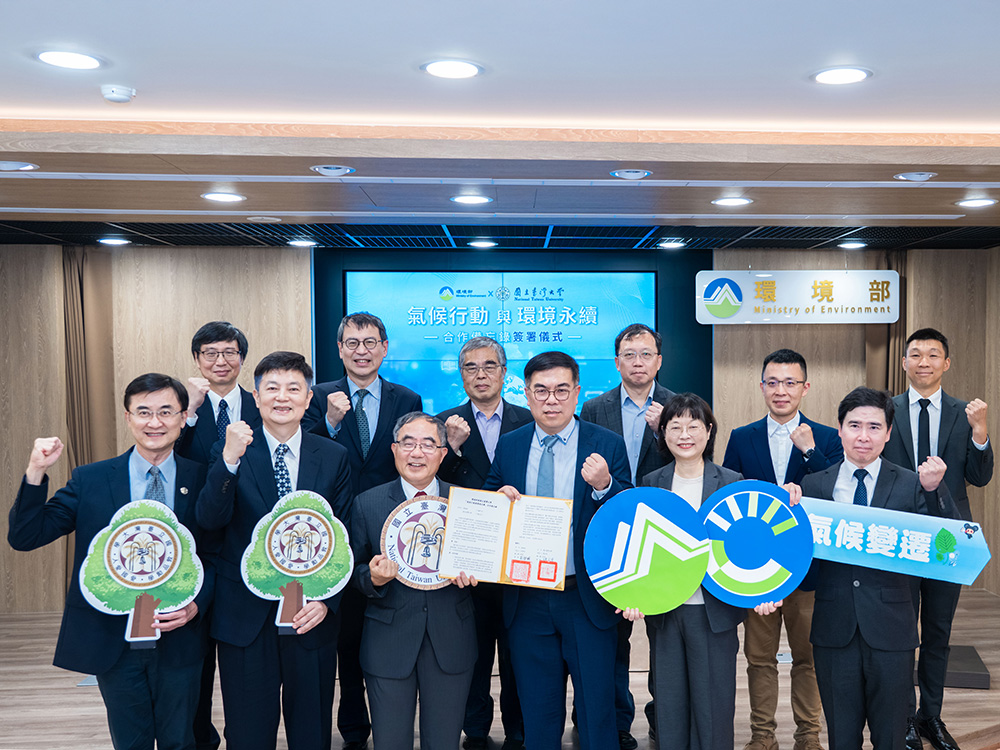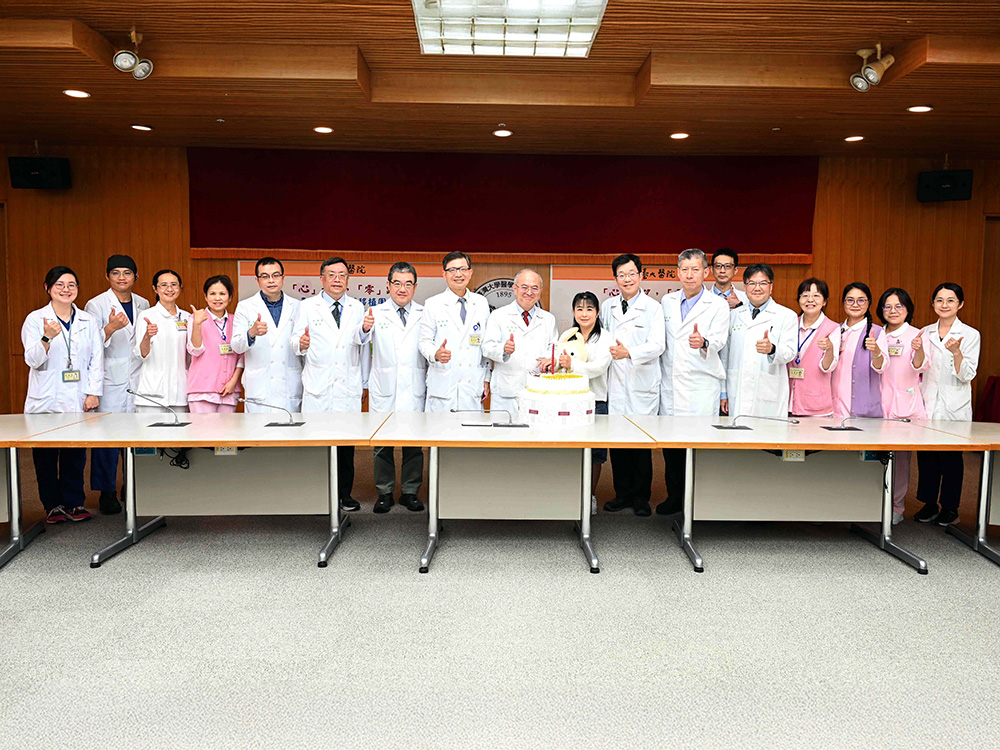
A Distinguished Global Research Center Established at NTU under Trilateral Cooperation
瀏覽器版本過舊,或未開啟 javascript
請更新瀏覽器或啟用 javascript
Spotlights
Teachers and students from the NTU College of Public Health at the WCSH 2017.
The XXI World Congress on Safety and Health at Work (WCSH) 2017 was held jointly by the International Labour Organization (ILO), the International Social Security Association (ISSA), and the Ministry of Manpower of Singapore during September 3-6, 2017 in the Sands Expo and Convention Centre, Singapore. Professors from the NTU College of Public Health led a delegation to the international conference. Among the attending faculty members and students were Prof. Chih-Chieh Chen (陳志傑) of the Institute of Occupational Medicine and Industrial Hygiene, Prof. Shih-Wei Tsai (蔡詩偉) of the Institute of Environmental Health, Prof. Yawen Cheng (鄭雅文) of the Institute of Health Policy and Management, as well as Prof. Cheng’s students Hsi-Chen Liu (劉曦宸), Fan-Ju Hsiao (蕭汎如), Chung-Yen Chen (陳宗延), and Li-Chung Pien (邊立中).
Every three years, government decision-makers, experts and academics, enterprise representatives, and workers gather at the WCSH to discuss current issues concerning occupational safety and health (OSH) and to establish research cooperation and partnerships. The conference this year was held under the motto “A Global Vision of Prevention,” and the three main topics were (1) Vision Zero – From Vision to Reality, (2) Healthy Work – Healthy Life, and (3) People-Centered Prevention. One of NTU’s attending doctoral students, Ms. Hsi-Chen Liu, gave us an account of how the conference had been an eye-opener and a thought-provoking experience for her.
Keynote Speeches
The keynote speaker of Topic 1: Vision Zero – From Vision to Reality was Mr. Michael López Alegría, Former Commander of the International Space Station. He gave several examples about training and duties in the space station, demonstrating the strategies for thoroughly preventing occupational injuries and diseases in the daily life of the station. Topic 1 consisted of two technical sessions: “Vision Zero” and “Leading Strategies for a Systems Approach to OSH.” I went to the latter one and learned that partnership and empowerment are the leading strategies for improving OSH performance. In this session, leaders from different areas unanimously emphasized the importance of cooperation among governments, employers, and employees in strengthening OSH systems and developing people’s OSH-related awareness and skills to foster relevant cultural values.
The keynote speaker of Topic 2: Healthy Work – Healthy Life was Minister Pirkko Mattila of Finland’s Ministry of Health and Social Affairs. She stressed that it is necessary to provide OSH education starting from kindergarten onward. Topic 2 comprised two technical sessions: “Compliance Strategies and Good Practices on OSH” and “Total Workplace Safety and Health.” I went to the former one, where countries shared strategies for OSH improvement. For example, to facilitate voluntary OSH activities among enterprises, the Japanese government has actively commended enterprises for outstanding OSH performance, provided individual employees with imitative Risk Experience Training (iRET), and offered adequate protective equipment. “Help Great Britain Work Well” from the UK proposed six interrelated strategies to address and fulfill OSH needs comprehensively.
Symposia
Among the 32 symposia, I participated in three of them. The first one was about occupational accident insurance and return-to-work schemes. ILO has established an international “Vision Zero Fund” aimed at alleviating the impact of occupational injuries and diseases on developing countries in global supply chains. The experiences of various regions and presenters from different sectors showed that using an insurance system to design a prevention, compensation, and return-to-work mechanism for occupational injuries and diseases is generally more cost-effective and efficacious.
The second symposium I attended was about psychosocial work hazards. My study “Psychosocial Work Hazards, Burnout and Self-Rated Health: A Comparison Study of Public and Private Sector Employees” was also posted. In the symposium, Prof. Maureen Dollard shared a model in which psychosocial safety climate serves as a moderator between psychosocial work hazards and health outcomes. In light of this, the monitoring of psychosocial safety climate in the workplace is becoming a crucial topic in OSH research. For example, how to protect personal privacy and avoid stigma in the workplace is a central concern in the “Stress Check” program recently initiated by Japan in December 2015.
The last symposium I attended was about the role and function of labor unions. Introduced in the symposium, Australia’s experience of applying tobacco control strategies to banning asbestos is worth learning from. In addition, I think Taiwan needs more civil participation.
I sincerely thank Ms. Chia-Nien Liu (劉嘉年) and Mr. Jian-Feng Wang (王建峰), who are a couple and alumni of the NTU Institute of Health Policy and Management, for subsidizing this tour. As a student studying in Taiwan, I think it is necessary to actively participate in international conferences to broaden our global horizon. Therefore, I also hope that the government or enterprises may provide more resources and funds to support students to attend such conferences.
Finally, the experience of attending this conference has inspired me to come up with several ideas that would hopefully benefit my future studies. First, I don’t think “Vision Zero” is practical because risks exist everywhere. If we targeted at “Vision Zero,” the number of unreported occupational injuries or diseases may increase and ultimately cause greater harm to workers. Second, “people-centered” strategies are important, but macro-level strategies should not be neglected as well. Third, partnership is key to establishing prevention, compensation, and return-to-work networks in OSH systems. Fourth, OSH education should start as early as possible. Fifth, Taiwan is in desperate need of a single, independent occupational accident insurance to ensure worker safety and health. Sixth, to propose appropriate strategies and policies, governments must understand the context of stakeholders’ accounts of psychosocial work hazards as well as its health impacts. Lastly, I hope to see various forms of civil participation prosper in Taiwan in the near future.
(Source: Hsi-Chen Liu, PhD Student, Institute of Health Policy and Management)

A Distinguished Global Research Center Established at NTU under Trilateral Cooperation

Collaborative study between NTU and Japan uncovers the origin of Adzuki Beans and agriculture in Japan

NTU Launches Center for Innovation in Enterprise Law—with Forum Highlighting Trump’s Policy and Legal Shifts Amid Geopolitical Tensions

NTU and Ministry of Environment Sign MOU to Advance Net-Zero Transition and Environmental Resilience

NTU Hospital’s Cardiac Transplant Team Pioneers Beating Heart Transplant with Zero Ischemic Time
Current Spotlights